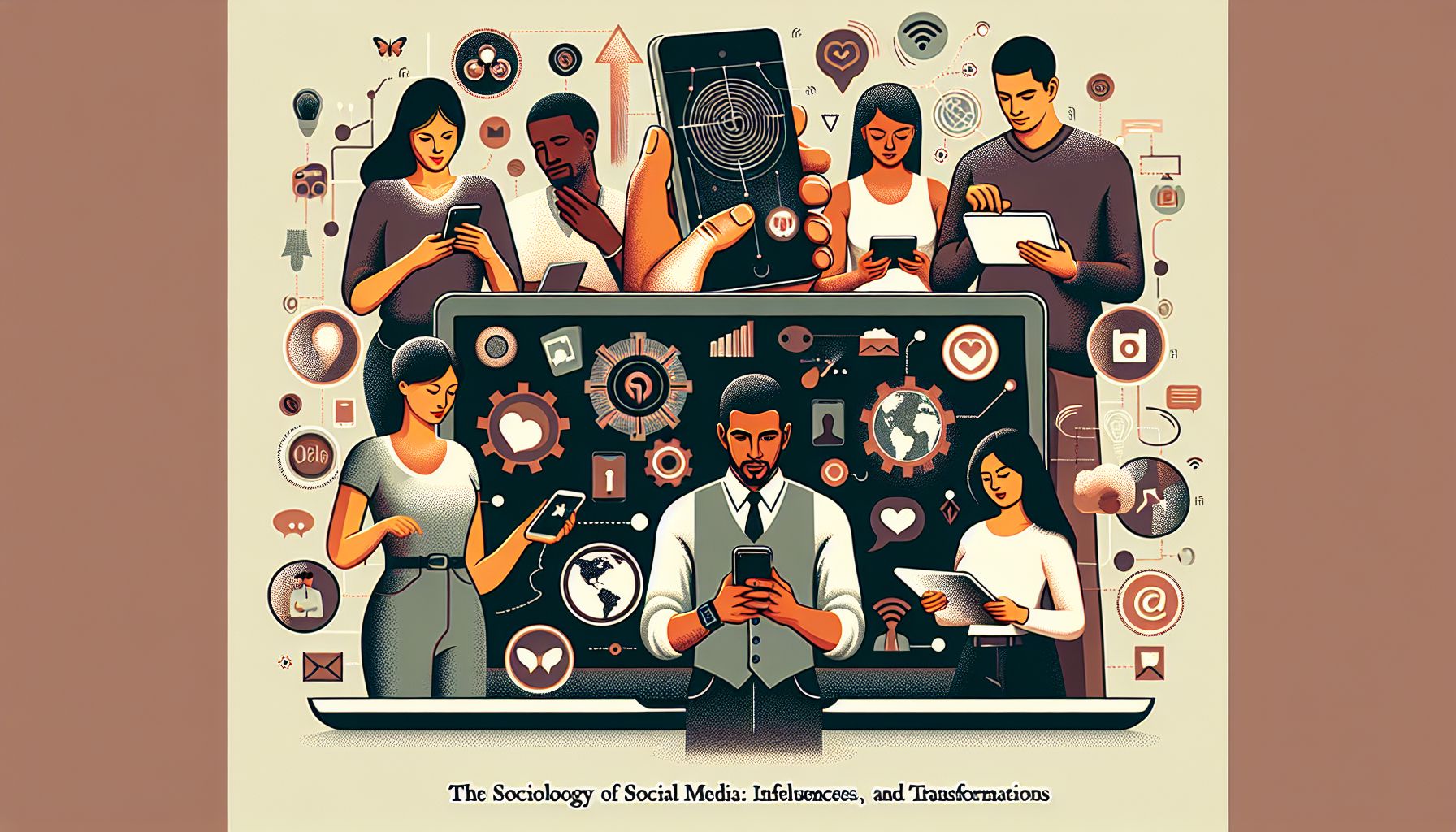The Sociology of Social Media: Influences, Trends, and Transformations
As we traverse the modern digital landscape, we can’t help but notice the pervasive and significant influence of social media on our societal fabric. Uniting societies and individuals, this global network is no longer simply a means of communication; it’s an essential life tool, impacting our behaviors, preferences, and cultural norms.
 Social media has transformed our lives, shaping our interactions and perceptions on a scale like never before. Its influence permeates across diverse sectors, including politics, business, and of course, our personal lives. This global phenomena invites a deep introspection on its impacts and the way it effectively steers contemporary human cultures and behavioral patterns.
Social media has transformed our lives, shaping our interactions and perceptions on a scale like never before. Its influence permeates across diverse sectors, including politics, business, and of course, our personal lives. This global phenomena invites a deep introspection on its impacts and the way it effectively steers contemporary human cultures and behavioral patterns.
Perhaps one of the most profound influences of social media is its impact on communication. No longer are our interactions just face-to-face or limited to the physical boundaries of our existence. Social media platforms have erased geographical limits enabling cross-cultural communication, fostering global unity, and broadening our horizons of perception and understanding. User-generated content drives conversations, influencing public opinion and individuals’ perspectives, often encouraging openness and diversity.
Furthermore, social media has dramatically altered human behavior patterns. The neuroscience of social media usage shows a robust connection between our online activities and our brain functionalities. The inherent need for social validation reflected in the form of “likes” and “shares” trigger dopamine releases in our brains, establishing a seemingly addictive cycle. Not only has this changed how we perceive ourselves and others, but also how we seek approval and validation in the digital era.
Marketing has also seen a significant shift due to social media. Businesses and marketers can now directly communicate with their consumers and audiences, effectively humanizing their brands and boosting visibility. The rapid propagation of trends, viral content, and user engagement on social media platforms have revolutionized marketing strategies, transforming interactions from simple one-way transactions to rich, conversational exchanges.
However, as we continue to weave ourselves further into this complex web, we must also address the ethical dilemmas it entails. Issues like cyberbullying, identity theft, misinformation, data privacy infringements, and the psychological implications of excessive usage make us question the ethical implications of the social media powerhouse.
As we look ahead, the world of social media might seem daunting with evolving challenges. It is about finding the balance between leveraging digital connectivity and ensuring personal and societal well-being. In a future where the landscape of human interaction will be even more integrated with social media, the exploration of the influence of social media can’t be a mere ad hoc discussion. It needs to be a comprehensive, continuous dialogue.
Social media indeed holds a mirror to our society – reflecting our behaviors, desires, and even our apprehensions. Will it guide us to a utopian interconnected world or lead us towards a labyrinth of digital addiction and ethical enigmas? The sociology of social media is not just another discipline; it’s a critical lens through which we examine, understand, and navigate our digital contemporaneities.

